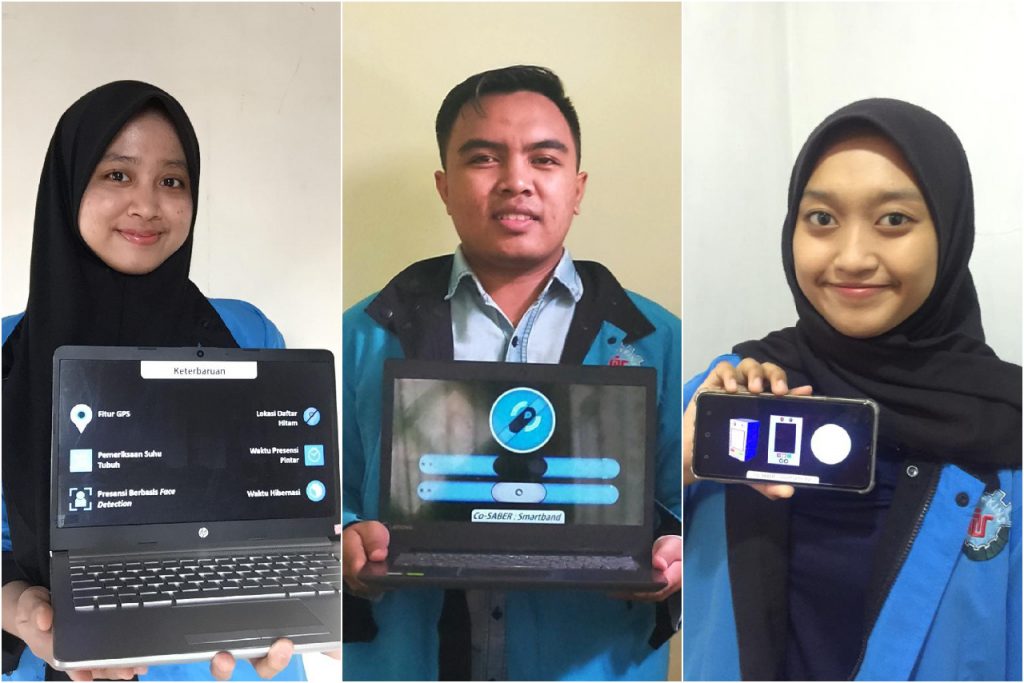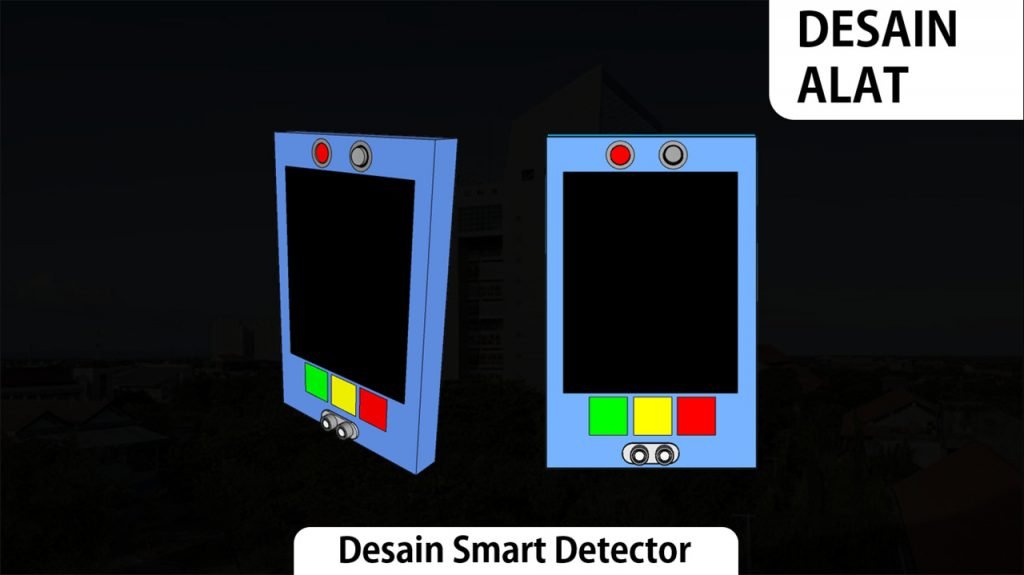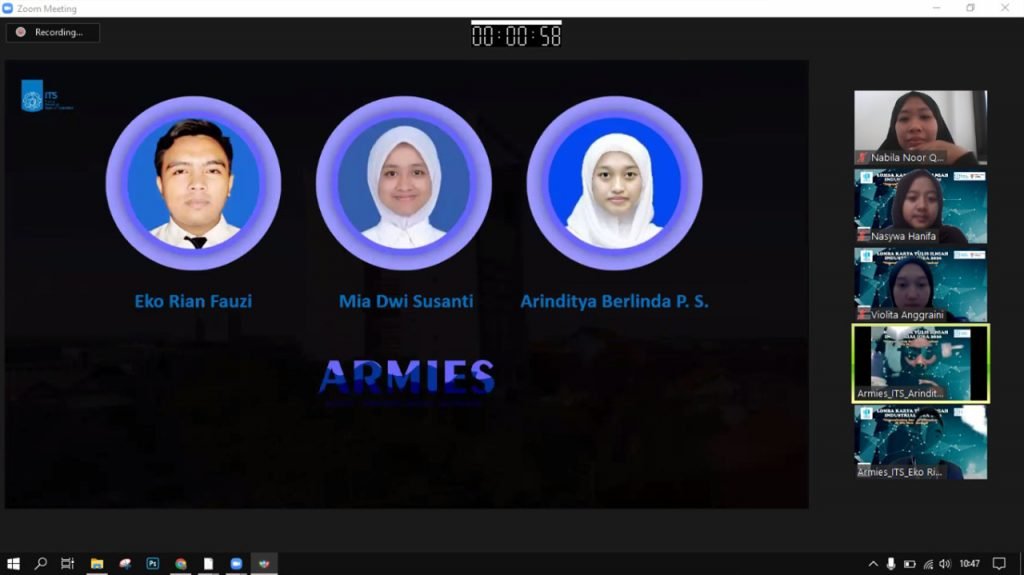Prevent The Spread of Covid-19, ITS Students Initiating Technology Co-Saber
Faculty
ITS Campus, ITS News – The increase in Covid-19 cases in industrial clusters has caught the attention of many parties, including three students of the Department of Instrumentation Engineering, Faculty of Vocational, ITS. Starting from the problem, they succeeded in initiating an innovation called Co-Saber: Corona Smartband and Smart Detector, a smart pression technology to prevent the spread of corona virus in small and medium industries.
They are Eko Rian Fauzi, Mia Dwi Susanti and Arinditya Berlinda. The three students who joined the team named Armies felt the need to take part in suppressing the transmission of Covid-19. Because, since this pandemic spread, the industrial world is affected so much that it has to go out of business.
Eko Rian Fauzi, Armies Team Leader said, although since last June the government has implemented a new normal adaptation period to restore the wheels of the economy in Indonesia, the impact of this policy apparently adds a new cluster of Covid-19 spread. “We assess the method of attendance using fingerprints to be one of the causes of the spread of the virus. Therefore, Co-Saber comes as a solution,” he said optimistically.

(from left) Mia Dwi Susanti, Eko Rian Fauzi and Arinditya Berlinda show the features on smartband and smart detector tools by their team
Co-Saber itself consists of two devices namely Smartband and Smart Detector connected by internet connection. Smartbands are specially designed to resemble bracelets that will be worn by workers. “The tool serves to monitor the travel history of workers so that this tool is accompanied by a Global Positioning System (GPS),” he explained.
While Smart Detector, continued Eko, is used as a non-contact press before workers enter the worksite. To minimize physical contact, a face detection feature is embedded to identify workers who are doing the review. “In this device, there is also an infrared light-based temperature sensor to measure the body temperature of workers without making physical contact,” added the young man from Probolinggo.
For how it works, first, ultrasonic sensors will identify the presence of a person in front of the device. If detected, the camera will later take an image of the worker’s face. “Then the results will be processed using face detection technology to find out the identity of workers who conduct the review,” he explained.
Furthermore, the worker’s travel history will be retrieved from Cloud Storage and automatically identified whether the worker visited one or more locations on the Covid-19 blacklist. The results of the identification of the temperature and location visited will be reprocessed and displayed by indicators.

Smart Detector Technology Co-Saber tool design the brainchild of Tim Armies from a student of ITS Instrumentation Engineering Department
Thanks to this brilliant idea, recently the Co-Saber technology that they stuttered has won the first place in the national competition held by IT Telkom Purwokerto, some time ago. In addition to teamwork, Eko said that lecturers of the Department of Instrumentation Engineering played an important role in spawning this idea. “Especially Ms. Sefi Novendra as our supervisor, who gave a lot of advice and input in developing this Co-Saber,” he added.
Eko revealed that there had previously been similar technology in 2014, especially in the use of face detection as an online review. What distinguishes the study, Co-Saber technology is equipped with features of body temperature measurement and identification of travel history, so that it can adjust to the conditions of the Covid-19 pandemic that is sweeping the world today.
With this technology, Eko hopes to help Micro, Small, and Medium Enterprises (MSMEs) that are still far from the touch of technology and threatened to stop operating due to the pandemic that never meets its estuary. “We also hope that with the application of this technology in the industrial world, workers can be more disciplined by not visiting places at risk of virus transmission,” he concluded.
(chi/Anjani/ITS Public Relation Officer)

Anggota Tim Armies, (dari kiri) Eko Rian Fauzi, Mia Dwi Susanti, dan Arinditya Berlinda
Latest News
-
Success Story of IoT Implementation: Salt and Drinking Water Production for Gili Genting Island
Gili Genting Island, Madura, is known for its high seawater salinity, ranking second in the world after the Dead
-
Faculty of Marine Technology – ITS Conducts Collaboration Exploration with Semarang Maritime Polytechnic (PIP)
Faculty of Marine Technology - ITS Conducts Collaboration Exploration with Polytechnic of Marine Science (PIP) Semarang Date: March 11,
-
The Journey of an Electrical Engineering Student to Success with Nogogeni ITS
The Nogogeni team from Institut Teknologi Sepuluh Nopember (ITS) once again demonstrated its commitment to innovation in energy-efficient vehicles.





